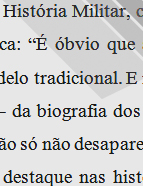

................................
Among the military historians who remain alive in our collective memory is Brigadier General José Maria Latino Coelho (1825–1891), author of Historia Militar e Politica de Portugal desde os fins do XVIII Seculo até 1814 [Military and Political History of Portugal from the Late 18th Century to 1814] (1874–1891; 1916). However, regarding lesser-known military historians whose works are nonetheless noteworthy, Colonel of Infantry Jaime Frederico Cordeiro (1829–1902) deserves mention as coordinator of the excellent Diccionario Militar, Etymologico, Historico, Technologico… [Military Etymological, Historical, Technological Dictionary …] (1880–1882). Recalling other military figures who wrote on history, one must highlight, for posterity, the forward-looking concerns of Captain of Artillery J. M. de Oliveira Simões (1880–1946) regarding higher military education, as demonstrated in A Escola do Exercito: breve noticia da sua Historia e da sua situação actual [The Military Academy: A Brief Account of Its History and Current Situation] (1892). Similarly, in the same context, reference can be made to L’École de L’Armée de Lisbonne: Histoire – Enseignement – Organization (1900) by Colonel Francisco Felisberto Dias Costa (1853–1913), a concern further pursued in A Escola Militar de Lisboa: Historia-Organização-Ensino [The Lisbon Military Academy : History-Organisation-Teaching] (1922) by Camilo Sena (dates unknown). Sena was also the author of Marinha de Guerra Portugueza: apontamentos para a sua Historia [Portuguese Navy: Notes on Its History] (1926). Additionally, A Escola do Exército: Sua Fundação e Evolução Histórica [The Military Academy: Its Foundation and Historical Evolution] (1950) by Lieutenant Colonel Alfredo Pereira da Conceição (1911–1972) reflects similar preoccupations.
Among the most prestigious military academics of his time was , undoubtedly, Major General José Estêvão de Morais Sarmento (1843–1930), commander of the Military Academy, a member of the Partido Regenerador , and Minister of War. Founder of the Diário Popular newspaper, he was one of the most proficient authors and editors of the Revista Militar , which earned him election as a member of the Royal Academy of Sciences of Lisbon. Focusing solely on his historiographical contributions, he left us valuable works, including O valor histórico dos cronistas medievais e designadamente de Fernão Lopes [The Historical Value of Mediaeval Chroniclers, particularly Fernão Lopes] (1923) and, of course, D. Pedro I e a sua Época [King Pedro I and His Era] (1924), among others. Deeply engaged with historical issues, he sought to cultivate a loyal readership, enjoying a reputation founded on the integrity of his historical-political studies and his collaboration with the periodical press.
This work is financed by national funds through FCT - Foundation for Science and Technology, I.P, in the scope of the projects UIDB/04311/2020 and UIDP/04311/2020.
